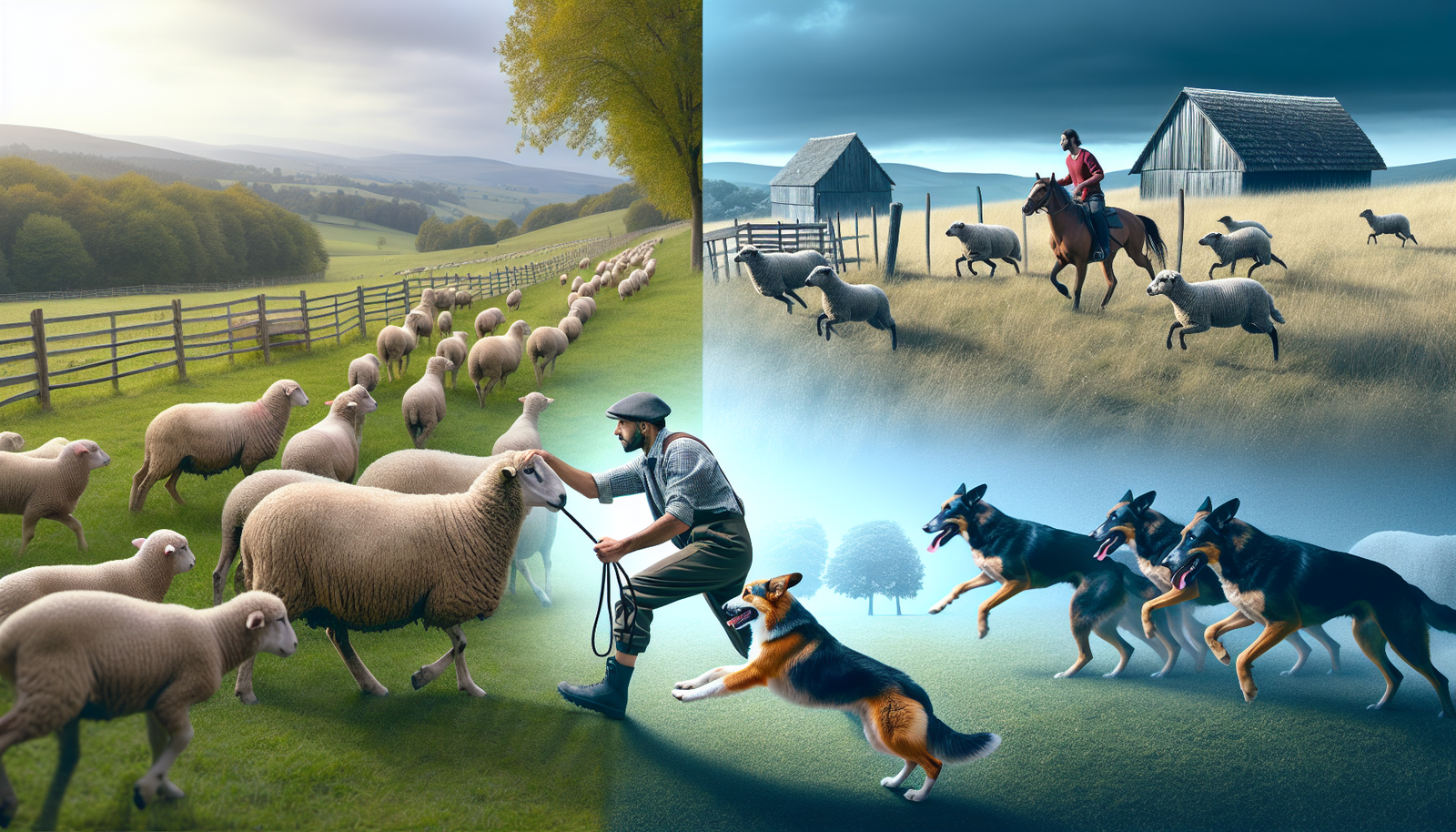Imagine watching a Border Collie or a Whippet speedily dashing through an obstacle course, leaping over hurdles and furiously grabbing a tennis ball before sprinting back to their handler. Now, picture a German Shepherd seamlessly joining in on the Flyball competition, showcasing their agility and fervor. But can Shepherds really compete in this high-energy dog sport? In this article, we explore the exciting world of Flyball and discover whether these intelligent and versatile dogs have what it takes to excel in this thrilling canine activity.
Can Shepherds Compete in Flyball?

What is Flyball?
Flyball is an exciting dog sport that involves a relay race between two teams. Each team consists of four dogs, and the goal is for each dog to jump over a series of hurdles, trigger a flyball box to release a tennis ball, catch the ball, and then return to their handler. The team that completes the course in the fastest time wins the race.
The Role of Shepherds in Flyball
When it comes to the sport of flyball, most people picture agile and speedy dogs like Border Collies or Jack Russell Terriers. However, many are surprised to learn that shepherds can also excel in this fast-paced and adrenaline-fueled game. Shepherds may not possess the same natural athleticism as some other breeds in flyball, but what they lack in speed, they make up for with their determination, intelligence, and versatility.
Challenges for Shepherds in Flyball
One of the main challenges faced by shepherds in flyball is their size. Most shepherds are larger and bulkier in comparison to the more commonly seen flyball breeds. This can make navigating the hurdles more challenging, especially for inexperienced shepherds or those who haven’t been properly trained. The larger size of shepherds can also make it harder for them to execute the quick turns and tight maneuvers required in flyball.
Another challenge for shepherds in flyball is their herding instinct. Shepherds are bred to work closely with their handlers and have a strong desire to round up and control livestock. This instinct can sometimes lead to distractions during the race, as shepherds may become more focused on herding their teammates or trying to anticipate their movements. It is crucial for shepherd handlers to understand this instinct and work on redirecting the shepherd’s focus towards the flyball task at hand.
Training Shepherds for Flyball
Training a shepherd for flyball requires a combination of patience, consistency, and positive reinforcement. It is important to start the training process at a young age when the shepherd is still highly adaptable and open to learning new skills. Basic obedience training should be a priority, as having a strong foundation in commands such as recall, stay, and heel will greatly benefit the shepherd in flyball.
Introducing the shepherd to the flyball equipment gradually is vital. Begin by teaching the dog to jump over low hurdles and gradually increase the height as they become more comfortable and confident. Introduce them to the flyball box by encouraging them to push the button with their paw or nose to release the ball. It may take some time for shepherds to fully grasp the concept, but with patience and positive reinforcement, they can excel in this sport.

Breeds of Shepherds Suitable for Flyball
While German Shepherds are the most well-known shepherds, there are other shepherd breeds that can also excel in flyball. Australian Shepherds, Belgian Malinois, and Border Collies all have the intelligence, agility, and drive necessary for success in flyball. These breeds have proven themselves in various dog sports and are known for their ability to quickly learn and execute complex tasks.
Shepherd Flyball Club Success Stories
Despite the challenges and misconceptions surrounding shepherds in flyball, there have been many success stories from shepherd handlers who have defied the odds and achieved remarkable results. Shepherd flyball clubs have emerged around the world, with dedicated teams showcasing the incredible abilities of these versatile dogs. These clubs often participate in competitions and have consistently proven that shepherds can indeed compete in flyball.
Tips for Shepherd Handlers in Flyball Competitions
For shepherd handlers, participating in flyball competitions can be both exhilarating and nerve-wracking. Here are some tips to help ensure success on the flyball course:
-
Focus on building a strong bond with your shepherd and establishing clear communication. The better your connection with your dog, the more smoothly your teamwork will flow.
-
Prioritize consistency and accuracy in training. Shepherds thrive on routine and tend to perform at their best when they know what is expected of them.
-
Utilize positive reinforcement techniques such as treats, praise, and play to motivate and reward your shepherd during training and on the race day.
-
Gradually increase the difficulty level as your shepherd becomes more proficient. This will help build their confidence and ensure steady progress.
Common Misconceptions about Shepherds in Flyball
Despite the growing presence of shepherds in flyball, there are still some common misconceptions that surround their participation in the sport. One of the primary misconceptions is that shepherds are too slow or lack the agility required for flyball. While they may not have the same top-end speed as some other breeds, shepherds can make up for it with their problem-solving abilities and determination.
Another misconception is that shepherds might prioritize herding their teammates over completing the course. While it is true that shepherds have a strong herding instinct, with proper training and redirection, they can learn to focus solely on their flyball duties and block out any distractions.
Shepherd’s Impact on Flyball Dynamics
Shepherds bring a unique dynamic to flyball teams. Their versatility, intelligence, and problem-solving abilities can provide an advantageous edge in strategic planning and execution. Shepherds have a knack for analyzing the course and anticipating potential obstacles, which can allow them to optimize their performance and shave seconds off their overall time.
Their strong sense of loyalty and dedication to their handlers can also make them incredibly focused and driven during the races. Shepherds often thrive on the challenge and excel in high-pressure situations, making them valuable assets to any flyball team.
Conclusion
In conclusion, shepherds can absolutely compete in flyball, despite the challenges they may face. With the right training, handling, and mindset, shepherds can prove their worth on the flyball course. Their determination, intelligence, and versatility make them formidable competitors, and their impact on flyball dynamics should not be underestimated. So, if you have a shepherd and are considering getting involved in flyball, don’t hesitate to give it a try – you may be pleasantly surprised by what you and your four-legged teammate can achieve together!

